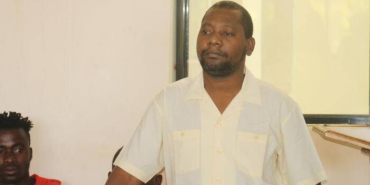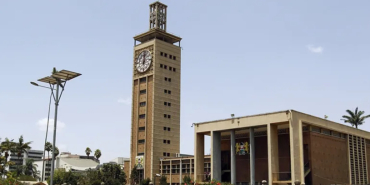Kenyan Court Upholds Deportation Order for Pakistani NGO Founder

A protracted legal battle has culminated in a High Court ruling that has upheld the government's decision to deport Nadeem Khan Shakoor, a Pakistani national and founder of the Blue Heart International Organisation (BHIO).
The court's decision, delivered recently, effectively clears the way for Mr Shakoor’s removal from Kenya, rejecting his application for judicial review and conservatory orders to prevent his arrest, prosecution, or deportation. Mr Shakoor, who has resided in Kenya for 28 years and is married to a Kenyan citizen, established BHIO with the stated mission of supporting victims of human trafficking, gender-based violence, and child abuse. He initially obtained a Class I work permit in May 2020 to facilitate these activities.
However, his application for renewal was rejected in July 2022 by the Directorate of Immigration Services, citing concerns over non-disclosure of critical information and doubts regarding the organisation’s legitimate operations. At the heart of the dispute is the purported location of BHIO's primary office. Mr Shakoor claimed that BHIO operates from a four-storey building behind Fairdeal Towers in Kongowea, Mombasa.
However, immigration officials reported that no such structure exists at the stated location, raising serious doubts about the organisation's physical presence and operational credibility. A site visit conducted by the Immigration Regional Director failed to verify the existence of the office, leading the Permit Determination Committee (PDC) to conclude that Mr Shakoor’s application lacked merit.
The PDC further argued that BHIO’s activities, which include victim protection, prosecution support, and collaboration with law enforcement agencies, fall within the law enforcement sector.
Under Kenyan immigration law, this sector is generally restricted to foreign nationals. Mr Shakoor contested this classification, asserting that his role as trustee and coordinator had not changed and that BHIO’s work remained humanitarian, not investigative or prosecutorial. In his legal filings, Mr Shakoor accused the authorities of arbitrary and discriminatory conduct, claiming that the decision to deny his permit renewal violated his constitutional rights to fair administrative action and family life.
He sought judicial review of the decisions made by the Ministry of Interior and the Director of Immigration Services, requesting conservatory orders to prevent his removal from the country. He also challenged his placement on the immigration watch list, arguing it was done without valid justification. Justice John Chigiti, presiding over the case, declined to grant the reliefs sought, citing procedural limitations. The court ruled that it lacked jurisdiction to issue certiorari orders because Mr Shakoor had filed his suit more than six months after the cause of action arose, thereby breaching statutory timelines.
The judge also upheld the government’s decision to deny the permit renewal, effectively paving the way for Mr Shakoor’s deportation. The state, represented by Senior Immigration Officer Christine Kinyua, defended its actions, stating that Mr Shakoor had failed to attend two critical committee meetings in June 2022. On one occasion, he cited illness, and on another, he sent representatives who were not BHIO employees or executive members.
These individuals reportedly presented business cards from unrelated organisations and were unable to answer basic questions about BHIO’s funding, staffing, and operational structure. According to Ms Kinyua, the committee had requested BHIO’s Memorandum of Understanding with stakeholders and a list of protected persons, but these documents were not provided. The lack of cooperation, coupled with the inability to verify the organisation’s office, led the authorities to conclude that BHIO’s operations were not sufficiently transparent or accountable to warrant permit renewal.
In his defence, Mr Shakoor argued that the committee’s demand for confidential data on trafficking victims was an overreach that violated ethical standards and jeopardised victim safety. He maintained that BHIO had submitted supplementary documentation, including an executive summary of its projects and recommendation letters, but these were allegedly ignored by immigration officials.
Mr Shakoor’s claim of collaboration with Kenyan authorities and international agencies such as Interpol adds a layer of complexity. However, without a traceable office and clear documentation, the credibility of BHIO’s operations remains in question. The Kenyan government maintains that its actions are in line with national laws and regulations.
"We are committed to fostering a conducive environment for NGOs to operate, but this must be within the confines of the law," said a spokesperson for the Ministry of Interior. "Transparency and accountability are paramount, especially when dealing with sensitive issues such as human trafficking and gender-based violence."








Add new comment